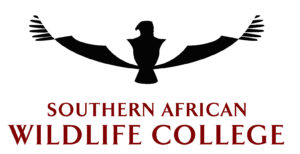Panthera
Panthera Wild Cat Conservation
Panthera is the only organization in the world that is devoted exclusively to the conservation of the world’s 38 wild cat species and their ecosystems.
Utilizing the expertise of the world’s premier cat biologists, Panthera develops and implements global strategies for the most imperiled large cats: tigers, lions, jaguars, snow leopards, cheetahs, pumas, and leopards.
Representing the most comprehensive effort of its kind, Panthera partners with local and international NGOs, scientific institutions, local communities, governments around the globe, and citizens who want to help ensure a future for wild cats.
Panthera’s grants program, the Small Cat Action Fund (SCAF), additionally supports conservation and research initiatives on many of the 31 smaller wild cat species around the globe.
Southern African Wildlife College
The Southern African Wildlife College (SAWC) was conceptualized in 1993 and established in 1996 by the World Wide Fund for Nature, South Africa (WWF South Africa) in close cooperation with interested and affected parties in southern Africa, including national and provincial government departments, other conservation agencies and the Southern African Development Community (SADC).
Since its inception, and with the support of WWF-SA and Peace Parks Foundation, the College has trained over 14,000 people from 46 countries, but mostly from countries in the SADC region, in natural resource management and conservation practices. By expanding its reach and becoming involved in training ventures and projects off-site, the College has also capacity-built over 2000 previously disadvantaged South Africans.
Through conservation education, training and skills development, the Southern African Wildlife College seeks to give protected area managers the motivation and skills they need to become partners in saving our continent’s natural heritage. All training comprises theory as well as practical skills and has been developed in close collaboration with conservation agencies and, where relevant, community participation.
The College also works closely with various qualification authorities and other training institutions to ensure that the students have maximum flexibility of career path. As an accredited HET and FET training institute, the College has aligned its curricula with the standards of the South African Qualification Authority (SAQA) and the National Qualifications Framework to ensure both national and international recognition.
By providing the high standards of professional and technical training that allows natural resource managers to manage their areas within the stated conservation objectives in cooperation with local communities, the College and its donors are helping to ensure that our natural resources are managed in an equitable and sustainable manner. In so doing, they also impact the role that conservation is playing in job creation and poverty alleviation in and around our wildlife reserves.
Mammoth Safaris is currently in the throes of exploring how best we can partner with the SAWC going forward, with our interest in guide training and wilderness conservation being paramount in our strategic thinking.
More about Jacques…
Jacques says…
Having a family history of game farming and conservation as part of my DNA, I naturally gravitated towards nature, wildlife and the open spaces, my true north. After graduating with a diploma in Nature conservation, I started to work for the South African National Parks (SANParks) where I was involved in exciting projects such as breeding disease-free buffalo, roan and sable antelope. These projects were established to ensure viable populations for reintroduction into other national parks. While at SANParks, I was also involved with the capture and movement of over 2,000 head of game to the new Mokala National Park from Vaalbos National Park and was the very first SANParks ranger to be stationed at Mokala National Park.
I wanted more, to travel, explore and to learn, so I eventually joined AndBeyond (originally CC Africa) and was stationed at Phinda Game Reserve in Northern Natal in 2008 as a guide after going through their intensive training program. Here is where my eyes lit up with the abundance of wildlife, the ecology and diversity of habitats. I was privileged to be surrounded by colleagues and mentors, who later became lifelong friends, who inspired me and who imparted a wealth of knowledge onto me. I was fortunate to share these moments and my love for the bush, not only at Phinda but at many other AndBeyond lodges, with my guests from South Africa and all over the world.
Having developed a deep appreciation for the role that great mentors played in both my professional and personal development, I too became passionate to share their advice and skills and soon found myself doing the same for younger and/or less experienced guides, naturally gravitating into a mentoring and training role. As a trainer I had the benefit of travelling the broader African continent with the responsibility of training various teams, including South Africa, Kenya, Tanzania, Botswana, Namibia and Angola.
Disclaimer
Contact Mammoth Safaris
+27 78 152 9479
Mardale Farm
No.35 Viljoenshoop Rd
Elgin, Western Cape, South Africa
Secure Payments via:

Insurance provided by:



